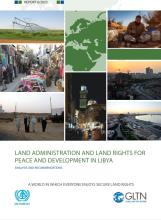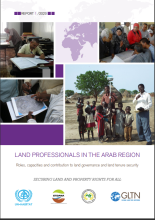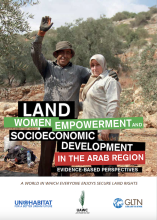Land Library Search
Through our robust search engine, you can search for any item of the over 73,000 highly curated resources in the Land Library.
If you would like to find an overview of what is possible, feel free to peruse the Search Guide.
/ library resources
Showing items 1 through 9 of 217.This report is a contribution towards the improvement of land management and land administration in Libya.
A functioning land sector is foundational to peace and stability, sustainable development, economic growth, food security, environmental conservation and poverty reduction in the Arab region.
Iraq is one of the easternmost countries of the Arab Region. It is bordered to the north by Turkey, to the east by Iran, to the west by Syria and Jordan, and to the south by Saudi Arabia and Kuwait.
There is a correlation between socio-economic development, human rights and the empowerment of men and women to participate at all levels of decision making.
This assessment study on land policy in Africa was initiated by the Civil Society (CSO) Platform, and supported by UN-Habitat, Global Land Tool Network (GLTN), International Land Coalition (ILC) and Welthungerhilfe (WHH).
These messages were developed based on the field experience in fragile and crisis affected contexts of UN-Habitat and the partners of the Global Land Tool Network and the HLP Area of Responsibility of the Global Protection Cluster. They are a quick reference on how to empower
Value, and its attribution to unregistered land, is important information for effective land acquisition, taxation and transfer processes and a key component of land administration systems.
These messages were developed based on the field experience in fragile and crisis affected contexts of UN-Habitat and the partners of the Global Land Tool Network and the HLP Area of Responsibility of the Global Protection Cluster.
The aim of this paper is to consolidate lessons from existing evidence that demonstrates the role of equitable access and tenure security to land in achieving sustainable food systems transformation, and subsequently, for the overall achievement of the SDGs.






